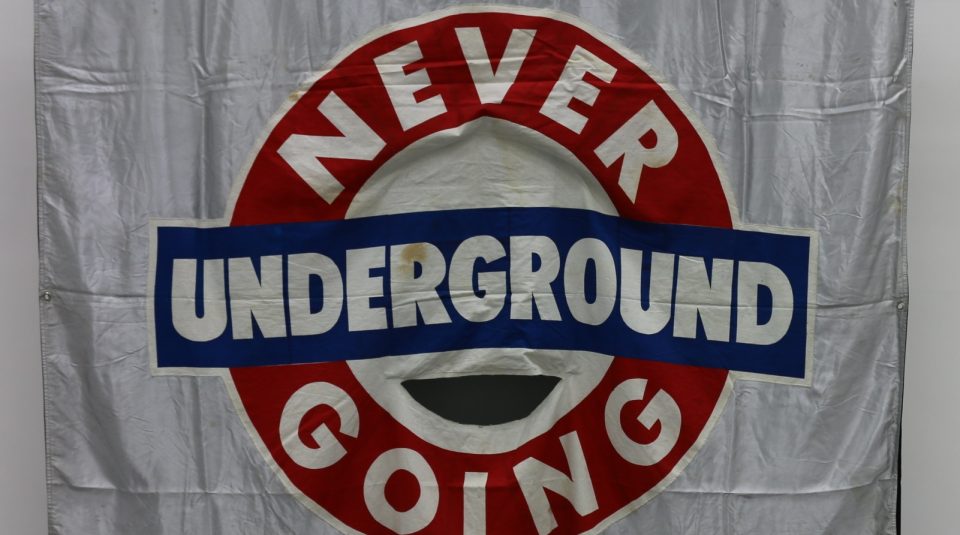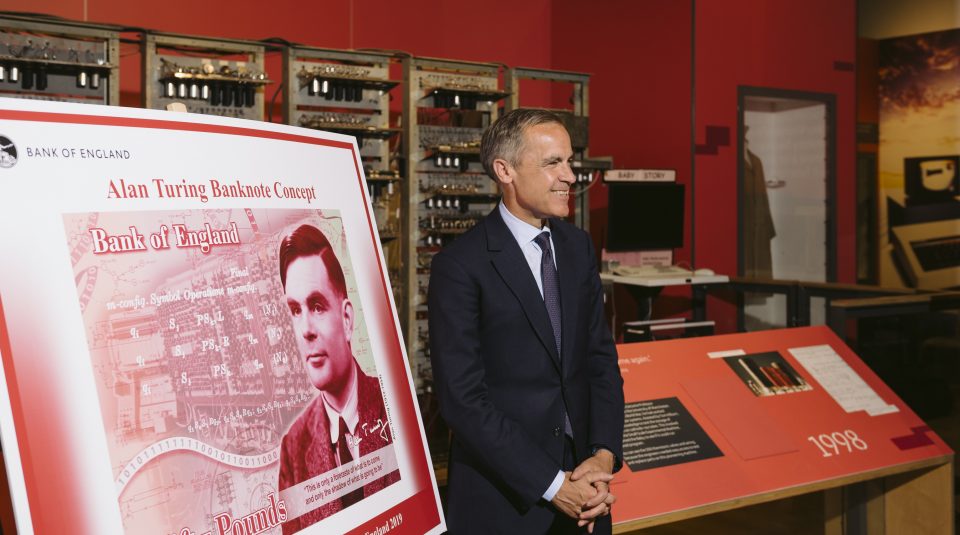

As we approach the weekend of Manchester Pride, Bernard Donoghue, Trustee at People’s History Museum (PHM) and CEO of the Association of Leading Visitor Attractions (ALVA) reflects on why he chose to be the PHM Radical Sponsor of Alan Turing.
‘Alan Turing (1912-1954) was an outstanding mathematician and codebreaker whose work has had an enormous impact on how we live today. During his life, he worked just a stone’s throw away from PHM at The University of Manchester. As the father of computer science and artificial intelligence, as well as a war hero, Alan Turing’s contributions were far ranging and path breaking. ‘Turing is a giant on whose shoulders so many now stand’. Words used by Mark Carney, Governor of the Bank of England, when announcing that Alan Turing will be the face of the new £50 note at Manchester’s Science and Industry Museum last month.
Such public recognition, or tribute, would have thought to be undesirable, if not impossible, just few years ago. His genius was harnessed by the state but his character was assassinated by it. His extraordinary achievements in codebreaking at Bletchley Park in World War II, his role as the father of modern computing and artificial intelligence, are remarkable and truly revolutionary.
In his novel about homosexual love in early 20th century England Maurice, published posthumously, the writer E M Forster, himself gay, wrote, ‘England has always been disinclined to accept human nature.’ The legally sanctioned persecution of gay men, and the general climate of homophobia and intolerance that was prevalent when Turing was alive was ultimately responsible for his death. In 1952 he was convicted for gross indecency, following which he was chemically castrated. He committed suicide in 1954.
The announcement that Alan Turing will now be on a bank note 65 years after his death is in no small way a tribute to the successful campaign to have his genius and achievements recognised, and for the state to atone for his death. In 2013 he was given a posthumous Royal pardon for his conviction after leading figures including Professor Stephen Hawking lobbied the Prime Minster.
Alan Turing is one of the People’s History Museum’s Radicals, men and women who have lived extraordinary lives, and in their very radicalism, changed the economic, political, cultural and scientific landscape of this nation and beyond. I am proud and honoured to be his Radical Sponsor, a donor to this radical and extraordinary museum which tells the stories of people power and ideas worth fighting for. I sponsor Alan Turing not only because of who he was and what he achieved – we all ‘stand on the shoulders of giants’ like him – but also of what and who he represents. The disregarded, the expendable, the intolerable, the unacceptable.
In the heart of Manchester’s Gay Village in Sackville Park is a statue of Alan Turing. We have come a long way in recognising and celebrating the diversity of human nature, but it is not a completed journey. Rights are always fought for, never willingly given. We are reminded every day of the need to be alert to the erosion of liberty and to continually fight for our beliefs and of our right to be who we are and to love whom we choose.
In an interview given to The Times newspaper on 11 June 1949, Alan Turing said of the modern computer and artificial intelligence, ‘This is only a foretaste of what is to come, and only the shadow of what is going to be.’ He was prophetic and glimpsed and created a scientific future that few others, at that time, could imagine or understand. He was a radical hero and we all owe him an enormous debt.
As we look to the future in the continuing fight for equality, the words of Alan Turing remain as relevant today as they did half a century ago, ‘We can only see a short distance ahead, but we can see plenty there that needs to be done’.’
Like Turing, there are so many stories of Radical heroes told throughout the museum and still so many to be explored. People’s History Museum is proud to honour so many Radicals who believe in ideas worth fighting for.
PHM tells the stories of LGBT+ people and their battle for equality, celebrating the brave pioneers, activists and campaigners who took a stand for the right to simply be themselves. PHM’s main galleries shine a light on the political importance of being seen, and showcases the ways the LGBT+ movement has championed visibility.
As a charity, People’s History Museum relies on the generous support of our visitors. From just £30 per year, you can Join the Radicals and, like Bernard, help the museum continue to celebrate and commemorate those people who campaign for ideas worth fighting for. Your support can help us engage more people in democracy, exploring its development in the past, present and future of Britain. Find out how you can Join the Radicals and support People’s History Museum.
Our friends at the Science and Industry Museum have published a series of blogs looking at why Turing was the right choice, by Lord Michael Grade who was involved in the campaign to pardon him, at a little-known aspect of Turing’s work in Manchester and their Science Museum Group Director of Science, Roger Highfield, takes a look at all the scientists on the shortlist.